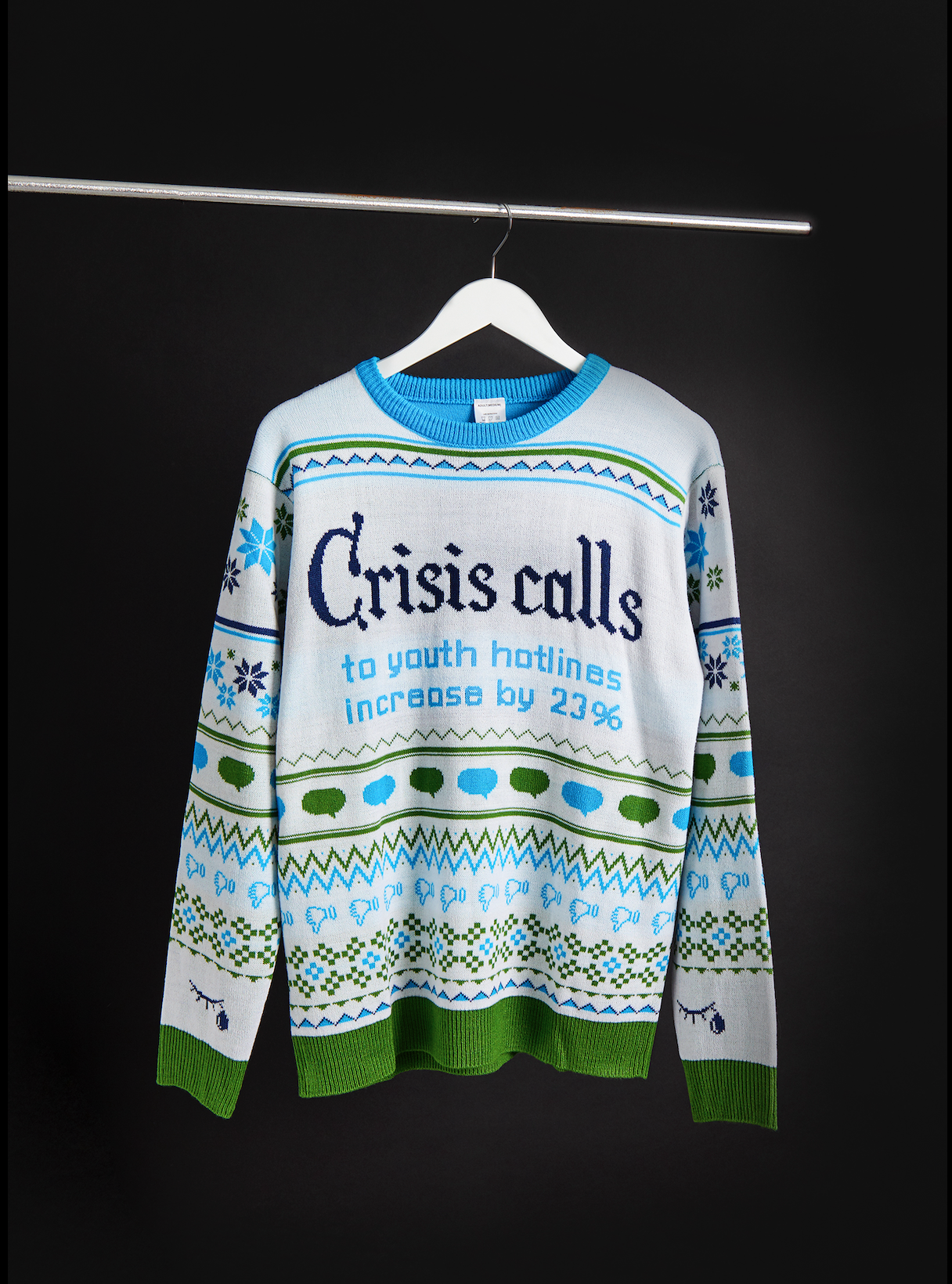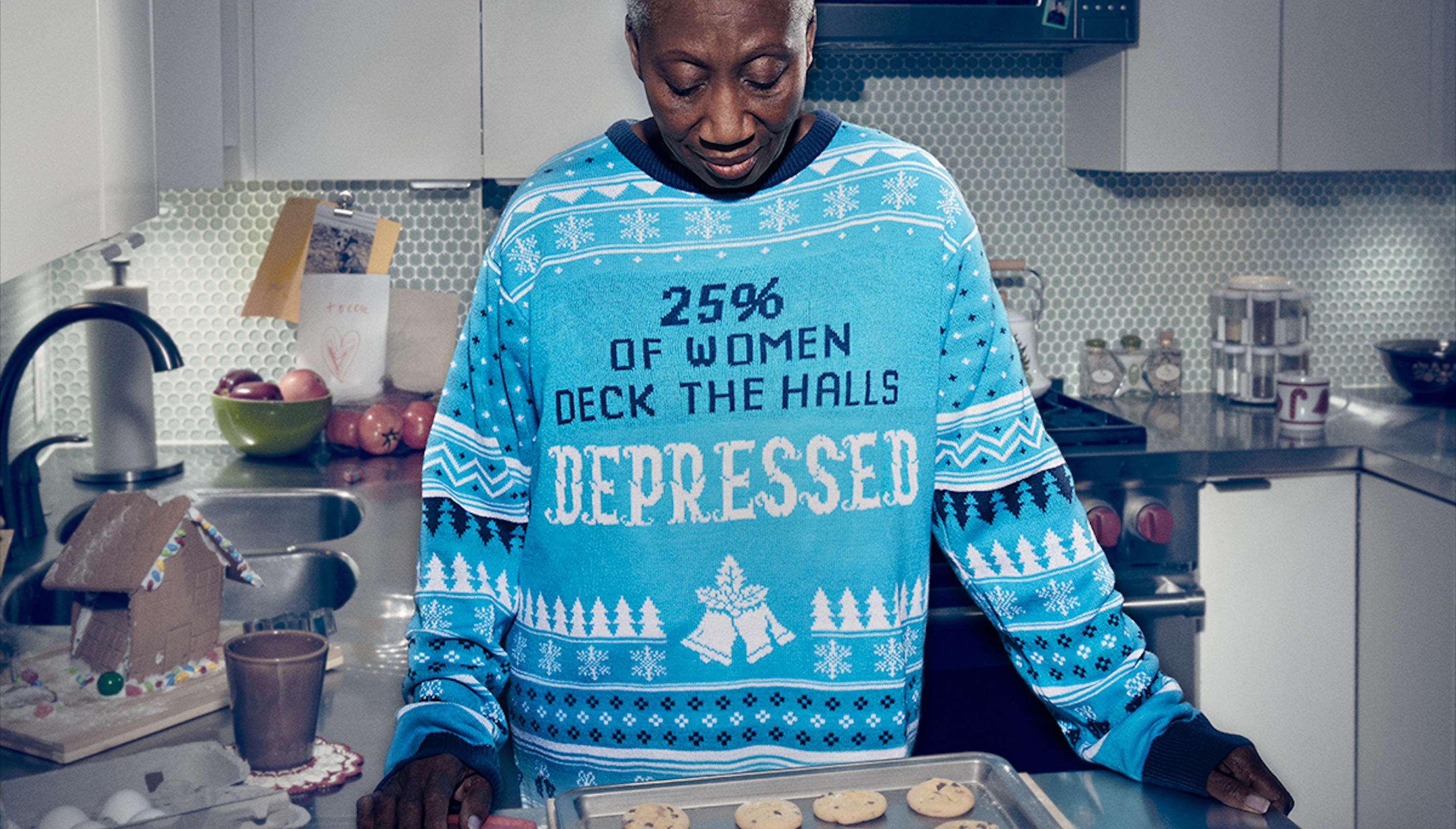While the holidays are widely considered a time of merriment and joy, for many, it’s not the most wonderful time of the year…
A recent survey by Maru Blue on behalf of the Canadian Mental Health Association (CMHA) and Citizen Relations revealed one in two (52%) Canadians experience feelings of anxiety, depression and loneliness during the holiday season.
The high expectations and emotional labour associated with the festive season can negatively impact one’s mental health, and for someone already struggling with depression or anxiety, the holidays can make things even worse.
In response to this, the Ugly (Truths) Holiday Sweater collection was designed to act as a catalyst to the conversation around the “ugly side” of the holidays. The sweaters take an iconic holiday staple and flip them on their head by highlighting mental health statistics that spark meaningful conversation so that those who find the holidays hard on their mental health know they’re not alone.

Mental Health During The Holiday Season With Margaret Eaton, National CEO, the Canadian Mental Health Association (CMHA)
Why does the holiday season affect mental health?
The holidays are a great time of joy and merriment with family and friends for many people. However, sometimes the holidays can just be too much, adding stress and putting strain on our finances and our mental health. The image of the ‘perfect holiday’ permeates our culture, and with that comes pressure and high expectations. Women often take on the bulk of emotional labour during the holidays—preparing meals and hosting family, for instance—and this long list of demands can lead to feelings of worry, sadness and anxiety. This time that’s known for connecting with friends and family can be especially hard for those who feel lonely or who have lost a loved one. And this year, you might feel sad or anxious because you have to cancel or modify your plans during the COVID-19 pandemic.
Why is it important to spark conversations about mental health during the holidays?
Half of Canadians—52%—report feelings of stress, anxiety or depression during the holiday season, but all the holiday cards, store windows and invitations promise nothing but joy and merriment. It’s important to know that good mental health actually includes the full range of human emotions, from joy to sadness and everything in between, and it’s ok if you’re not feeling festive. When we balance the conversation about what comes with the holidays, people feel seen and heard—which makes them more likely to reach out for support and get help if they need it.

What are some tips people can follow to take care of their mental health during this season?
If the holidays are just too much, here are some tips to help you preserve your peace of mind:
1. Recognize that the holidays are supposed to be a celebration, not an obligation, and dial back the expectations.
2. Avoid over-indulging in food, finances and substances like drugs and alcohol, and don’t forget to fit in sleep and exercise.
3. Reduce the pressure on yourself by asking for help, delegating and remembering that it’s not your job to make everyone else have fun.
4. Know your own limits in social situations and take a walk, call a friend or say “no, thank you” to events that drive up your anxiety.
5. If you’re feeling lonely or alone, connect with a friend, volunteer for a local organization or take in an online event or activity.
Most importantly, if you are struggling, know that there is help and there is hope. If you just want to talk to someone, there are “warm lines” for you to do just that at the Government of Canada’s Wellness Together. And there are 330 Canadian Mental Health Association (CMHA) community locations across the country with local programs and services in your neighbourhood; find them at www.cmha.ca. If you are thinking of suicide, please call 1-833-456-4566 toll-free in Canada (1-866-277-3553 in Quebec) or dial 911.
Published by HOLR Magazine


